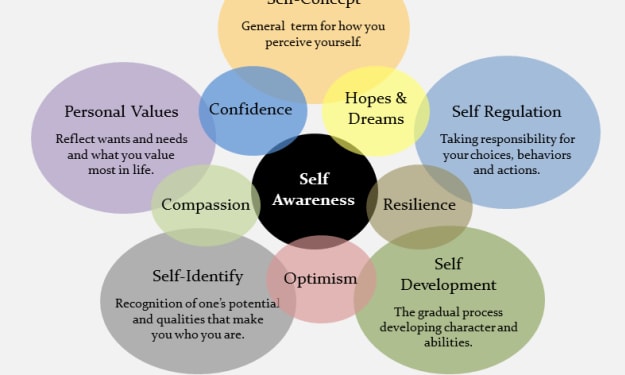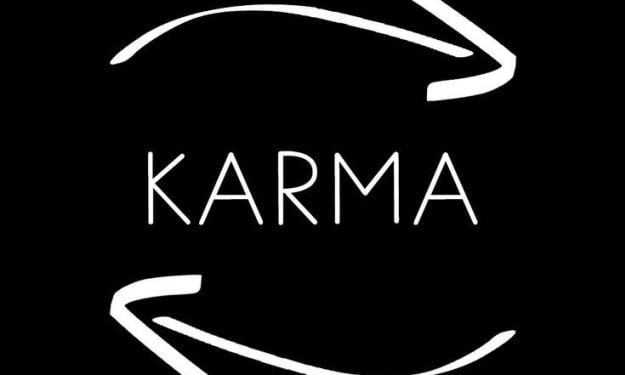
Documentaries such as Prescription Thugs or Generation Rx can be very good documentaries but they tend to portray only one part of mental health and addictions many times and focus on drug abuse. My main concern regarding these documentaries is that frequently they do not show every aspect of the mental health issue. This concern alone can lead to people generating cognitive biased opinions towards the issues surrounding mental health.
Various media outlets need to realize that mental health issues can be affected by even the slightest thing whether it is intentional or not. These things can potentially have a negative impact on an individual's life. As a society, we need to be more aware of these things! One episode of the sitcom Last Man Standing provides one such example when the daughter takes her nephew's ADD medication.
Instead of being supportive, initially, they made it out to be cheating like an athlete taking steroids to enhance his/her performance at a sport. Until they realized that it wasn't cheating or an addiction due to her eventually being diagnosed with ADHD, they did not fully understand the positive impact the medication was having on their daughter's life.
The message was clear before the end of that particular episode. "When an individual needs the pills, it is medicine!" This is was probably one of the best quotes I have heard from a television show and this episode also covered ADD as a valid medical condition. In my honest opinion many other television shows and other forms of media and society, in general, should be following the same approach to mental health issues but unfortunately, they take the opposite approach. Instead most times people perceive mental health problems and medication in the media very negatively.
As an example when Simone Biles came out after the Olympics stating she takes medication for ADHD,
“That being said I have known kids who got diagnosed just to get the meds. Speed is speed and it does give an individual an advantage. Keeping this in mind, I do believe scrutiny is justified."
I have ADHD also and take medication, I also have a 2nd-degree black belt in taekwondo and coached and successfully competed on the national level and a little in the US. While taking a prescribed medication for ADHD I can not state this enough that it just makes your brain work like everyone else's.
“You cannot recover from anxiety by just staying calm. You cannot recover from depression by just being positive. You cannot recover from anorexia nervosa by just eating more. If mental illnesses were that simple we wouldn’t be struggling in the first place.”
This is how we perceive it instead depression is just a state of mind or walk it off, anxiety stop over thinking, or just relax ADHD just focus it's all in your head.
Not everything is the media's fault but they played and continue to play a huge role in the way people look at this topic by doing things such as allowing memes that show this type of negative information on Facebook and other social media sites.
Let's look at the psychology behind the bias that media purposely creates. It is a form of cognitive bias commonly known as confirmation bias.
“In psychology and cognitive science, confirmation bias (or confirmatory bias) is a tendency to search for or interpret information in a way that confirms one's preconceptions, leading to statistical errors.”
“Confirmation bias is a type of cognitive bias and represents an error of inductive inference toward confirmation of the hypothesis under study."
"Confirmation bias is a phenomenon wherein decision makers have been shown to actively seek out and assign more weight to evidence that confirms their hypothesis, and ignore or underweight evidence that could disconfirm their hypothesis.”
Let's take a look at how so-called mental health documentaries impact the way we view mental health issues and treatments.
Here's a quote from The Marketing of Madness regarding the DSM (Diagnostic Statistical Manual for Mental Disorders):
“Some psychotropic drugs prescribed to children are more addictive than cocaine. Psychiatric diagnoses appear to be based on dubious science. Of the 297 mental disorders contained with the Diagnostic and Statistical Manual of Mental Disorders, none can be objectively measured by pathological tests.”
What society needs to understand is that the medication is being taken for health issues and society has no right or reason to shun any individual who needs to take any form of medicine for the betterment of his/ her health.
When it comes to dealing with things that they have absolutely no education in other than watching YouTube videos or using the Google search engine because it's not a degree, various media outlets need to realize that mental health issues can be affected by even the slightest thing whether it is intentional or not. These things can potentially have a negative impact on an individual's life.
Psychological issues are complicated and need to be treated as being so. Negative comments such as the ones I mentioned need to stop!
Psychological issues impact everyone differently depending on the person, the situation, their experiences with the situation and their self-awareness regarding how it physically and psychologically affects them. These types of ignorant, damaging comments do nothing but interfere with the positive gains an individual may have made and society should have a zero tolerance towards this wrongful attitude.
Instead of having a zero tolerance towards people who suffer from mental health issues, which is what society does and being not only apathetic towards mental health problems but making them worse, society should attempt to become educated about the issues and understand that mental health issues are just as real as physical health issues.
There needs to more investigation and explanation, for how they look at the various aspects of mental health.
When the media takes away from the medicinal aspects of the treatment of mental health issues and the psychological aspects, people are not going to see medication as anything more than a way to get high. They are sending the wrong message!
When it comes to looking at mental health issues through various media outlets, here are a few things that they should keep in mind.
Show all aspects of the story. I watched a show one evening which totally bashed the DSM. The entire program was based on negativity towards the DMS and the sad part was that at the end I seriously doubted that the commentator even knew what the acronym DSM meant. The media needs to be impartial because otherwise the audience may be negatively affected by the message it is sending out to the public.The media has a great influence on what the public perceives and needs more carefully monitoring the messages it sends. The media needs a complete understanding that mental health has three parts: medical, psychological, and pharmaceutical aspects and how they are necessary and they are all needed for a balanced treatment plan. All these factions need to be taken into account when dealing with mental health. This is the message which the media needs to send out to its audience.
Stop referring to mental health issues as being a fake illness and as being ploys by the individual to gain pity or attention or to get pills.
Stop being extremely biased towards psychology and often times taking a tunnel vision view towards how they view and report incidents involving mental health issues.
When an unbiased viewpoint is lacking, the information is often presented in a manner which can be damaging and can take away from the seriousness of the medical issue!
In conclusion, take a look at the way confirmation bias plays a role in how your opinions are shaped regarding healthcare whether it's pharmaceutical, psychological, or medical because all are extremely important and deserve to be treated that way you view mental health issues or as I like to call them, valid medical conditions.
Also keep in mind, that we all play a part in our own treatment.






Comments
There are no comments for this story
Be the first to respond and start the conversation.